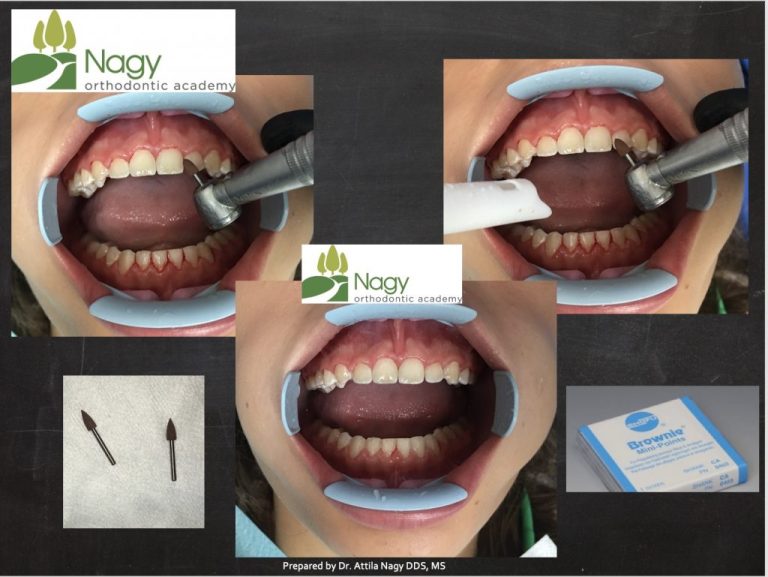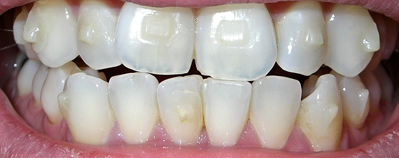Are Lingual Braces Permanent: Demystifying Their Longevity
Lingual braces are not permanent; they are removable orthodontic appliances fixed to the inner surface of the teeth. Lingual braces are an alternative to traditional braces for people who want a discreet orthodontic treatment.
However, they require regular adjustments and must be worn for the prescribed time to achieve the desired results. These braces can be easily removed for eating, brushing, and flossing. Still, they should be worn consistently to ensure effective treatment. Lingual braces are a popular choice for those who want straighter teeth without the appearance of traditional braces but still require dedication to achieve the desired outcome.
Lingual Braces: An Invisible Alternative To Traditional Braces
Lingual braces are a popular invisible alternative to traditional braces. They are fixed to the back of the teeth, making them virtually unnoticeable. These braces offer several benefits, including improved aesthetics and the ability to address complex dental issues. They work by applying continuous pressure to gradually move the teeth into the desired position.
Unlike traditional braces, lingual braces are custom-made to fit each individual’s teeth, resulting in more effective and efficient treatment. They can be used to correct various dental problems, such as crooked teeth, misalignments, and gaps. Choosing lingual braces over traditional braces allows patients to maintain a natural appearance while undergoing orthodontic treatment.
With increasing advancements in dental technology, the popularity of lingual braces continues to rise as individuals seek discreet and effective solutions for straightening their teeth.
Factors Affecting The Longevity Of Lingual Braces
Lingual braces, although not permanent, can last a long time with proper care. Good oral hygiene and regular maintenance are crucial for their longevity. Brushing and flossing regularly helps prevent plaque buildup and gum disease. Additionally, avoiding certain dietary restrictions and habits, such as avoiding hard and sticky foods, can prevent damage to the braces.
Furthermore, natural tooth movement plays a role in how long the lingual braces will last. As the teeth shift into their new positions, it is essential to attend regular check-ups with the orthodontist to ensure the braces are adjusted correctly.
Taking these factors into consideration and following the necessary steps will help maximize the lifespan of lingual braces.
Breaking The Myth: Are Lingual Braces Really Permanent?
Breaking the myth lingual braces are not permanent, unlike their traditional counterparts. Many people need clarification about the long-term permanence of lingual braces. However, it’s essential to understand that no orthodontic treatment is entirely permanent. Lingual braces do offer a level of permanence, but they are not wholly immune to changes.
The results of lingual braces can last for many years, but some adjustments may be required over time. Patients can expect long-term results with proper maintenance, including wearing retainers as directed.
The Importance Of Proper Care And Maintenance
Proper care and maintenance of lingual braces are essential for their effectiveness. Maintaining a daily oral hygiene routine is crucial for ensuring the longevity of these braces. Regular visits to the orthodontist are necessary for adjustments and check-ups, allowing any issues to be addressed promptly.
Lingual braces may come with specific challenges, but they can be managed with proper care and patience. It is essential to be aware of common problems that may arise with lingual braces and take the necessary steps to handle them.
By following these guidelines and maintaining good oral hygiene, lingual braces can provide the desired results and be a long-term solution for dental alignment.
Prolonging The Lifespan Of Lingual Braces: Tips And Advice
Lingual braces are not permanent, but their lifespan can be prolonged with proper care. Avoid sticky and hard foods that could damage the braces. Cultivate good oral hygiene habits such as brushing and flossing regularly to prevent plaque buildup. After the braces are removed, there are retention options available to maintain the corrected alignment of the teeth.
Retainers are commonly used, either removable or fixed, to keep the teeth in their new positions. It is essential to follow the orthodontist’s instructions for wearing and caring for retainers to ensure long-lasting results. By being mindful of what you eat and adopting good oral care practices, you can maximize the longevity of your lingual braces and enjoy a beautiful, straight smile for years to come.
Lifestyle Considerations And Lingual Braces
Engaging in sports and physical activities while wearing lingual braces requires special consideration. Many individuals wonder about the impact of their lifestyle choices on the longevity of these braces. Fortunately, lingual braces are designed to be durable and withstand the demands of an active lifestyle.
With proper care and caution, you can continue participating in your favorite sports and activities without compromising the effectiveness of your braces. It’s always helpful to gather experiences and testimonials from individuals who have had lingual braces for an extended period.
By listening to their insights, you can gain a better understanding of how lingual braces hold up over time. Remember, it’s essential to consult with your orthodontist and follow their guidelines to ensure the best results with your lingual braces.
Keep enjoying your active lifestyle while maintaining a beautiful smile.
Exploring Alternative Orthodontic Options
Lingual braces offer a discreet orthodontic option for those seeking an alternative to traditional braces. They are placed on the back of the teeth, making them virtually invisible to others. However, the question of their permanence often arises. There are other discreet orthodontic treatment options available, such as clear aligners, ceramic braces, and self-ligating braces.
Each option has its pros and cons, and the longevity of lingual braces differs among them. Factors to consider when choosing between lingual braces and other options include treatment duration, cost, effectiveness, and personal preference. Ultimately, it is essential to consult with an orthodontist to determine the best treatment option for your specific needs.
Remember, the goal is to achieve a straighter smile, and with the advancements in orthodontic technology, there are many alternatives to explore.
Frequently Asked Questions On Are Lingual Braces Permanent
Are Lingual Braces Permanent?
Lingual braces are a type of orthodontic treatment that can provide long-lasting results. They are attached to the back of the teeth, making them virtually invisible. While lingual braces are not considered permanent, they are designed to stay in place until the desired results are achieved.
However, proper oral hygiene and regular dental visits are essential to maintain the results achieved with lingual braces.
How Long Do Lingual Braces Stay On?
The duration of lingual braces treatment varies depending on the individual’s specific orthodontic needs. On average, lingual braces stay on for about 18 to 36 months. However, the length of treatment can vary based on factors such as the complexity of the case, the severity of misalignment, and the patient’s response to treatment.
Can I Eat Normally With Lingual Braces?
Yes, you can eat normally with lingual braces. Unlike traditional braces, lingual braces are placed on the back of the teeth, allowing you to maintain your regular diet during treatment. However, it is advisable to avoid certain hard, sticky, or chewy foods that can damage the braces.
Your orthodontist will provide you with a list of recommended foods and tips on how to care for your lingual braces during eating.
Conclusion
Lingual braces offer a discreet and effective solution for those who want to straighten their teeth without the appearance of traditional braces. While they may not be considered permanent, they do require a longer treatment duration compared to other orthodontic options.
This is because the process of moving teeth into their desired positions takes time, and lingual braces give the advantage of being hidden behind the teeth. As long as patients adhere to the guidance of their orthodontist and maintain good oral hygiene, the results achieved with lingual braces can be long-lasting.
It’s important to understand that the success of lingual braces treatment depends on individual factors and the complexity of each case. Therefore, consulting with a qualified orthodontist is crucial to determine if lingual braces are the right choice for you to achieve the straight smile you desire.


